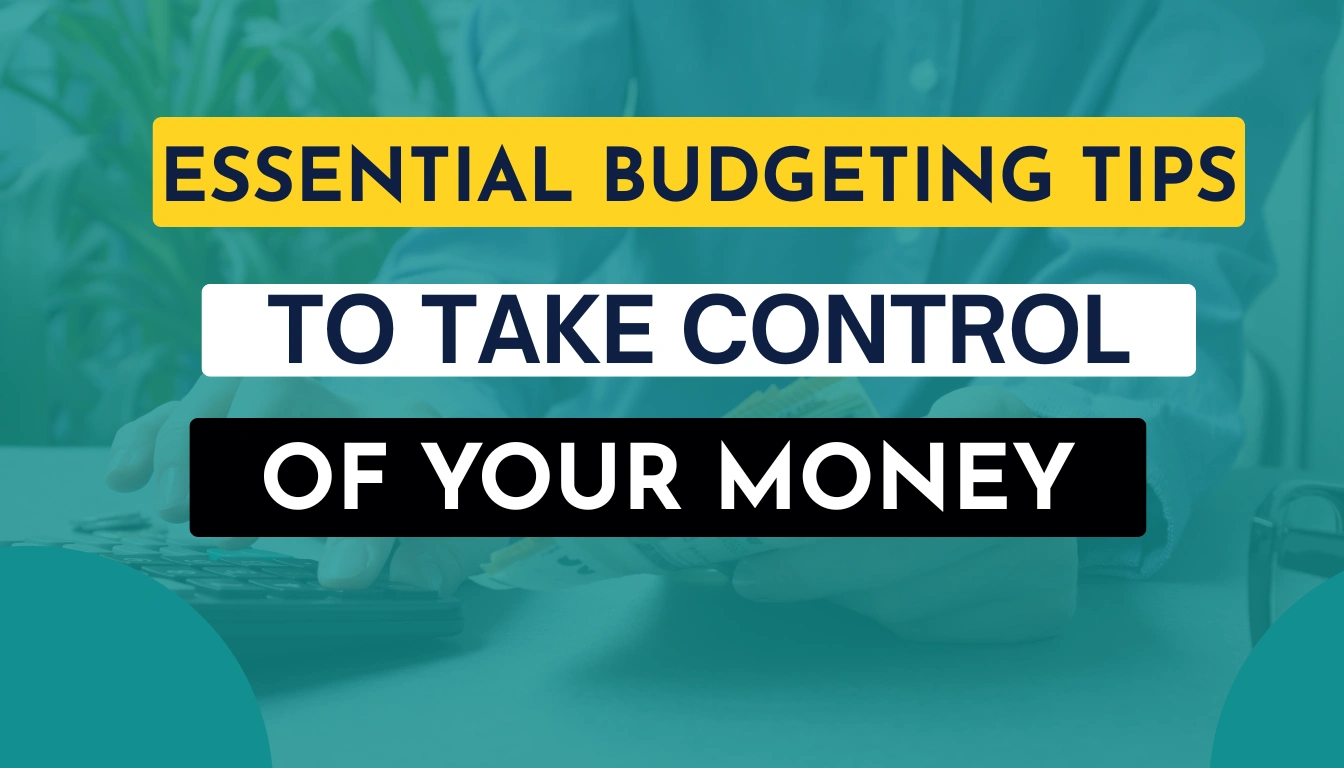Financial planning doesn’t have to be scary. Learning budgeting tips can change your life. It’s not about cutting out fun things. It’s about making smart choices with your money.
Starting to manage your finances is easy. It’s about understanding how money moves through your life. Budgeting is about freedom, not limits. It helps you move from living paycheck to paycheck to financial stability.
Good money management means you spend wisely, feel less stressed, and focus on what’s important. Whether you dream of a big vacation or a secure retirement, budgeting shows you the way.
Key Takeaways
- Budgeting is about strategic financial planning, not deprivation
- Understanding your spending patterns is crucial for success
- Financial control reduces stress and increases opportunities
- Everyone can benefit from personalized budgeting strategies
- Consistent tracking leads to better financial decisions
Understanding the Basics of Budgeting

Learning about personal finance begins with the budget. It’s not just numbers; it’s a plan for financial success. Your budget is a roadmap to better money management.
What is a Budget?
A budget is a plan for your money. It tracks your income and expenses. It helps you make smart choices about spending. Think of it as a guide to reaching your financial goals.
Budgeting isn’t about cutting back. It’s about spending wisely. It helps you make the most of your money.
- Tracks monthly income
- Categorizes spending habits
- Identifies potential savings opportunities
- Provides financial clarity
Why Budgeting Matters
Budgeting gives you control over your money. It helps you understand where your money goes. This way, you can make better choices and reduce stress.
It also helps you achieve financial stability in the long run.
| Financial Benefit | Impact |
|---|---|
| Expense Awareness | Reduces unnecessary spending |
| Savings Growth | Helps build emergency funds |
| Debt Management | Facilitates faster debt repayment |
Common Budgeting Myths
Many people think budgets are a bad thing. But they’re not. Budgets are tools for financial freedom, not restrictions. They help you use your money better, not limit your lifestyle.
- Myth: Budgets are only for people in financial trouble
- Myth: Budgeting is too complicated
- Myth: Budgets remove all fun from spending
Setting Financial Goals

Starting a solid financial plan means setting clear goals. Your budget strategies get stronger with specific targets. It’s not just about cutting spending—it’s about reaching your dreams.
Short-term vs. Long-term Goals
Knowing the difference between short-term and long-term goals changes how you save. Here’s a look at each:
- Short-term Goals (1-3 years)
- Building an emergency fund
- Paying off credit card debt
- Saving for a vacation
- Long-term Goals (3+ years)
- Buying a home
- Saving for retirement
- Starting a business
Creating SMART Financial Goals
Good budget strategies need SMART goals for clear direction and motivation. Here’s how to make your financial goals achievable:
- Specific: Clearly define what you want to achieve
- Measurable: Set clear criteria for tracking progress
- Achievable: Make goals realistic based on your current finances
- Relevant: Make sure goals fit with your financial vision
- Time-bound: Set a specific time frame for achieving goals
Using these goal-setting methods turns financial planning into a clear path to success. Start small, stay consistent, and celebrate your wins.
Creating a Realistic Budget
Creating a budget is key to managing your money well. It acts as a guide, showing you where your money goes. The goal is to make a budget that fits your life and money situation.
Choosing the right budgeting method is important. There are many ways to manage your money:
- Zero-Based Budgeting: Assign every dollar a specific purpose
- 50/30/20 Rule: Divide income into needs, wants, and savings
- Envelope System: Use cash-based categories to limit spending
Selecting Your Budgeting Approach
Think about your financial goals and spending habits when picking a budget method. Some like digital tools, others prefer spreadsheets. The most important thing is to find a method you can stick to.
Tracking Income and Expenses
Tracking your expenses is crucial for good money management. Start by gathering all your financial documents. Then, sort your income and expenses into categories. Use apps or spreadsheets to keep track of every transaction, including both regular and irregular income.
- Review bank statements
- Track cash and digital purchases
- Include irregular income like bonuses or freelance work
A good budget is flexible and changes with your finances. Regularly review and adjust it to stay on track and reach your financial goals.
Identifying Your Needs vs. Wants
Learning about personal finance starts with knowing the difference between needs and wants. Living frugally means knowing what you really need. Your budget should cover things that keep you healthy, safe, and able to work.
At the heart of saving money is knowing your financial needs. Experts say to focus on the Four Walls of personal finance:
- Food: Nutritious meals and basic groceries
- Utilities: Essential home services like electricity and water
- Shelter: Rent or mortgage payments
- Transportation: Reliable means of getting to work and essential destinations
Determining Essential Expenses
When looking at your expenses, ask yourself important questions. Is this purchase needed for my survival and well-being? Does it help me work or stay healthy? These questions help you tell needs from wants.
Evaluating Discretionary Spending
Discretionary spending includes things like entertainment, dining out, and luxury items. These aren’t bad, but they should come last. Make a budget that lets you enjoy life while staying financially responsible.
Personal finance is about finding a balance. By knowing the difference between needs and wants, you can make a budget that helps you reach your financial goals without feeling too tight.
Using Budgeting Tools and Apps
Digital technology has changed how we manage money. Now, tracking expenses is easier than ever. Budgeting tools and apps make financial planning simple, helping you track and manage your money well.
Today’s budgeting apps come with powerful features. They help you understand your spending, set financial goals, and keep your budget in check.
Top Budgeting Apps in the U.S.
Many budgeting apps are popular for smart money management:
- YNAB (You Need A Budget) – Best for zero-based budgeting
- Mint – Comprehensive free financial tracking
- Personal Capital – Ideal for investment tracking
- EveryDollar – Simple expense categorization
Selecting the Right Budgeting Tool
Choosing the right budgeting app depends on your financial needs. Think about these factors:
| Factor | Considerations |
|---|---|
| Budget Complexity | Simple vs. detailed tracking needs |
| Cost | Free vs. paid features |
| User Interface | Ease of use and navigation |
| Additional Features | Investment tracking, bill management |
When using budgeting tips, pick a tool you’ll use often. Try different apps to find the one that fits you best. Most offer free trials, so you can test them before deciding.
Building an Emergency Fund
Financial planning is not complete without an emergency fund. This key part of personal finance acts as a safety net. It helps you avoid debt when unexpected expenses come up.
Why You Need an Emergency Fund
An emergency fund is your first defense against financial uncertainty. It helps you deal with sudden costs like medical bills or car repairs. With a good emergency fund, you can face surprises without going into debt.
- Provides financial security during unexpected situations
- Reduces stress during financial challenges
- Prevents reliance on high-interest credit cards
- Supports your overall financial planning goals
How Much Should You Save?
Experts say to save 3-6 months of living expenses. Start small if you can – even $1,000 is a big help. Save a set amount from each paycheck to grow your fund.
Here are some ways to build your emergency fund:
- Set up automatic transfers to a dedicated savings account
- Save unexpected windfalls like tax refunds or work bonuses
- Cut unnecessary expenses and redirect that money to savings
- Consider a side hustle to boost your emergency fund
Remember, an emergency fund is not an investment – it’s your financial protection plan. Keep it in an easily accessible savings account where you can quickly withdraw funds when needed.
Adjusting Your Budget Regularly
Managing your money well means being flexible. Your financial plan is not set in stone. It needs regular updates as your life changes. This is why it’s key to keep checking and tweaking your budget often.
When to Revisit Your Budget
Having a regular time to review your budget helps you meet your financial goals. Look to update your budget at these times:
- After getting a raise or bonus
- After big life changes like getting married or switching jobs
- At major financial events
- Every quarter
Signs That It’s Time for a Change
Knowing when to adjust your budget is vital for good financial planning. Keep an eye out for these signs:
- Spending too much in certain areas
- Income going up and down unexpectedly
- New financial goals or priorities
- Changes in what you spend on living expenses
By being proactive and flexible with your budget, you can better control your finances. This helps you reach your long-term money goals.
Avoiding Common Budgeting Pitfalls
Managing personal finance means knowing the common budgeting mistakes. Many people find it hard to track their expenses. This can lead them away from their financial goals. Knowing these mistakes can help you make a better budget.
Underestimating Expenses
Being realistic about your spending is key. Many people underestimate their costs by:
- Forgetting about irregular expenses like car maintenance
- Overlooking seasonal costs such as holiday gifts
- Failing to account for annual subscriptions
To avoid this, look at your bank statements from last year. Categorize every expense and identify patterns you might have missed. This will give you a clearer view of your spending.
Ignoring Small Purchases
Small purchases can add up. A $5 coffee daily might seem small, but it’s $150 a month. Tracking your expenses helps you see these small costs.
- Track every purchase, no matter how small
- Use budgeting apps to automatically categorize spending
- Review micro-expenses weekly
By focusing on these small details, you can better manage your money. This helps you avoid losing money that could hurt your financial goals.
Tips for Sticking to Your Budget
Keeping to your budget can be tough. It takes strategy, commitment, and support. The right way can make your frugal living dreams come true.
Creating a lasting budget is more than just tracking money. It’s about making a system that keeps you on track and motivated.
Finding Your Accountability Partner
Choosing the right person to keep you on track can make a big difference. Think about these options:
- A financially responsible friend
- A trusted family member
- A professional financial advisor
- An online budgeting community
Rewarding Your Financial Milestones
It’s key to celebrate your budget wins. Set up a reward system that honors your financial victories without throwing off your budget.
| Budget Milestone | Suggested Reward | Cost |
|---|---|---|
| Save first $500 | Movie night at home | $10-$20 |
| Reduce discretionary spending | Affordable self-care activity | $25-$50 |
| Complete 3-month budget tracking | Small personal purchase | $75-$100 |
Remember, sustainable budgeting is about making habits that fit your financial life. Be patient, flexible, and kind to yourself as you work on it.
Saving for Retirement
Planning for retirement is key to your financial future. Even if it seems far off, starting early is crucial. It can greatly improve your financial security later on.
Understanding savings strategies and account options is part of financial planning. Your approach to saving should be proactive and strategic.
Starting Early with Retirement Savings
The power of compound interest is huge for early retirement savings. Here are some benefits:
- Time lets your investments grow a lot
- Even small contributions can add up over time
- It reduces financial stress later on
Different Retirement Accounts Explained
Choosing the right retirement account is important. Here are the main options:
- 401(k): Employer-sponsored plan with potential matching contributions
- Traditional IRA: Contributions are tax-deductible, and growth is tax-deferred
- Roth IRA: Contributions are made after taxes, but withdrawals are tax-free
Experts say to invest about 15% of your income for retirement. Use employer-sponsored plans, especially if they match your contributions. This is like getting free money for your future.
The Importance of Reviewing Your Budget
Effective money management means regularly checking your budget. Your budget is a tool that changes as you do. By reviewing it often, you can spot spending patterns and make smart changes.
Monthly reviews help catch small issues before they grow. Look at your income, expenses, and savings goals. Find where you might be spending too much and how to save better. These regular checks keep you on track with your money goals.
Annual reviews give a bigger picture of your finances. They help you see long-term trends and check your progress toward big goals. Use budgeting apps or a financial advisor to make this easier and get better insights.
Every review is a chance to learn and improve. It’s a way to understand your spending habits and get better at managing money. See these reviews as steps toward financial growth and personal strength.

